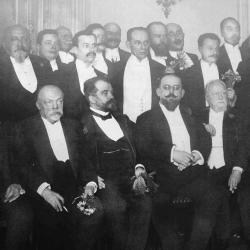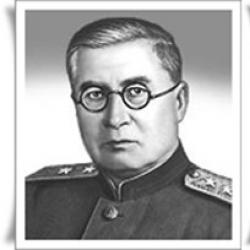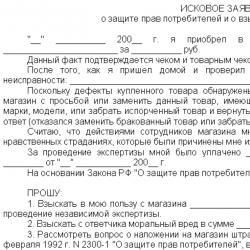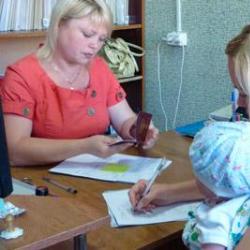Congress of Finno-Ugric Peoples. Merkushkin’s appointment is a sign of the Kremlin’s attention to the Finno-Ugric peoples
Last Monday, President Putin signed a decree terminating the powers of Governor Merkushkin and appointed him as his special representative for interaction with the World Congress of Finno-Ugric Peoples. “There is active propaganda against us in the international arena, including in the countries of the Finno-Ugric world. At this stage, not all of them are on our side,” Nikolai Ivanovich commented on his new challenge. Realizing that the knowledge of Togliatti residents about the Finno-Ugric peoples, and even more so about their World Congress, is insignificant, “PN” decided to fill this gap.
As Nikolai Merkushkin admitted before his departure, it took him two and a half years to delve into the affairs of the Samara region, where three million people live. Considering that the total number of Finno-Ugric peoples with whom Nikolai Ivanovich will interact in the very near future is 25 million people, it is difficult to imagine the required period of time to plunge headlong into new work. It’s good that the Congress of Finno-Ugric Peoples takes place only once every four years; perhaps this will give the ex-governor some time to maneuver.
The new field of activity of Nikolai Merkushkin is very complex, although it begins with an obvious concept: the Finno-Ugric peoples are divided into two groups - Finnish and Ugric. Of these, there are about 14 million Hungarians, 5 million Finns, about 1 million Estonians, 843 thousand Mordvins, 637 thousand Udmurts, 614 thousand Mari. The territory of residence of the Finno-Ugric peoples includes Western Siberia, Central, Northern and Eastern Europe.
Interesting fact: Finno-Ugric languages are not included in the group of Indo-European languages (which includes Russian), unlike, say, Iranian languages. This is a group of related languages, forming a branch within the Uralic language family, spoken in Russia, Norway, Finland, Sweden, Estonia, Hungary and other countries. So, from a linguistic point of view, the Iranian language is closer to us than Finnish and Hungarian.
What follows is even more interesting. Finno-Ugric peoples are divided into five subgroups. The basis of the first, Baltic-Finnish, consists of Finns and Estonians, and the most numerous representatives of this group in Russia - Karelians - use three autochthonous dialects. In addition, the Vepsians and Izhorians belong to the same subgroup - small peoples who have preserved their languages, as well as the Vod (there are less than a hundred people left) and the Liv.
The second subgroup is the Sami. The main part of the peoples who gave it its name are settled in Scandinavia. In Russia, the Sami live on the Kola Peninsula.
The third subgroup - Volga-Finnish - includes the Mari living in the Republic of Mari El, Bashkortostan, Tatarstan, Udmurtia, as well as Mordovians - the autochthonous population of the Republic of Mordovia. Obviously, it was the latter circumstance that became the reason for the appointment of Merkushkin to the role of special representative.
The fourth, Perm, subgroup includes the Komi-Permyaks and Udmurts. The fifth, Ugric, includes the Hungarians, Khanty and Mansi.
According to researchers, the linguistic kinship of the Finno-Ugric peoples is primarily traced in the similarity of linguistic structures, which significantly influences the formation of the thinking and worldview of peoples. “Despite the difference in cultures, this circumstance contributes to the emergence of mutual understanding between these ethnic groups,” say linguists. – At the same time, the peculiar psychology determined by the thought process in these languages enriches the universal human culture with their unique vision of the world. Thus, unlike the Indo-Europeans, the representative of the Finno-Ugric people is inclined to treat nature with exceptional respect. Finno-Ugric culture contributed to the desire of these peoples to peacefully adapt to their neighbors - as a rule, they preferred not to fight, but to migrate, preserving their identity.”
Let us now turn to the topic of the World Congress of Finno-Ugric Peoples, which will meet in 2020 in Tartu (Estonia). Turning to historical background, this congress is “a forum for the representation of the Finno-Ugric and Samoyed peoples, which does not depend on governments and political parties and in its activities is based on the “Declaration on Cooperation of the Finno-Ugric Peoples of the World” (from the resolution of the First Congress, 1992 year). The tasks of the congress include “preservation and development of Finno-Ugric languages and cultures, protection of the rights and interests of these peoples, activation of interregional and international Finno-Ugric scientific, cultural and social contacts at the state and interstate levels, strengthening the national self-awareness of ethnic groups and self-perception as a single spiritual -cultural community."
All decisions made at such forums are advisory in nature. For example, at the last congress, which was held in Finnish Lahti, they decided to develop ethno-tourism and create a Finno-Ugric tourism organization that will join the World Tourism Association of Indigenous Peoples.
And here’s what Nikolai Merkushkin said about his new appointment: “My transfer to this site is very important for the President of the Russian Federation. There is active propaganda against us in the international arena, including in the countries of the Finno-Ugric world. When I worked in Mordovia, this topic was especially clearly covered by the European Parliament. They wanted to expel our delegation because the Finno-Ugric peoples are oppressed in our country. Two commissions came to Mordovia and worked for several days. As a result of this trip, the issue was removed from the agenda of the European Parliament. Today this topic is more complex than at that stage. And taking into account my contacts and connections, I was asked to work on this topic in the near future.”
18:50 — REGNUM
President of Russia Vladimir Putin Today, September 25, he accepted his resignation of his own free will. Nikolai Merkushkin from the post of governor of the Samara region. As previously reported IA REGNUM, Merkushkin was appointed special representative of the President of the Russian Federation for interaction with the World Congress of Finno-Ugric Peoples.
About the advantages of Nikolai Merkushkin’s appointment for Russia’s domestic and foreign policy to a correspondent IA REGNUM said a member of the UN Expert Mechanism on the Rights of Indigenous Peoples.

: What is the World Congress of Finno-Ugric Peoples?
— This is an independent platform for interaction between public organizations and representatives of Finno-Ugric peoples, which has existed since 1992. Every four years, the congress is held in one of the four countries where representatives of this group live. During the congresses, the preservation and development of Finno-Ugric languages and cultures, the protection of the rights and interests of the Finno-Ugric peoples, and the activation of international contacts are discussed.
: Are there official representatives of states among the congress participants?
— No, usually the delegates are public figures chosen by the organizations of the Finno-Ugric peoples themselves. Officials are also always involved, but a presidential representative is new to Congress.
: It turns out that Russia is paying the Congress the closest attention of all the participating countries?
— I can note that in 2016, when the next meeting of the congress was held in the city of Lahti in Finland, a certain coolness was felt on the Russian side: the Finno-Ugric delegations of Russia and the official delegation were significantly reduced. However, it appears that these sentiments have now changed. At the opening of the Russian-Finnish Cultural Forum in St. Petersburg on September 21 this year, the prime ministers of Russia and Finland - Dmitry Medvedev And Juha Sipilä— emphasized the importance of supporting international Finno-Ugric cooperation at the state level. It seems that today's decision by the president is a logical continuation of Dmitry Medvedev's statements.
: Why was this post given to Nikolai Merkushkin?
— I would call Merkushkin a long-time supporter of the Finno-Ugric movement in Russia. Even when he was the speaker of the State Assembly of Mordovia, he built a dialogue with representatives of Finno-Ugric public organizations. Having become the head of the republic, he continued his politics, and many events - congresses, conferences, festivals - were held in Saransk. In a word, Nikolai Merkushkin is a well-known figure in the circles of Finno-Ugric activists, and now, as a federal-level politician, he can become a significant figure capable of supporting efforts to promote their interests on international platforms.
: What significance does this event have for the Finno-Ugric peoples of Russia?
— Only in a positive way can we consider the fact that international cooperation will not be curtailed, but will continue and develop. I hope that with the appointment of Merkushkin we can expect even greater attention to the Russian representatives of this group of peoples.
: Is this appointment connected with the desire of the Russian authorities to soften “separatist” sentiments among the Finno-Ugric peoples, which are periodically fueled from the outside?
— I think that the idea of Finno-Ugric separatists in general is very exaggerated. Unity with Russia as a state is the will of all Finno-Ugric peoples of the country. However, the creation of a fundamentally new position for Nikolai Merkushkin is an indicator that the Kremlin wants to formulate a clearer position on this issue and absolutely precisely articulate it in relations with Hungary, Finland and Estonia - countries that, according to certain forces in the federal center, are more active all are supported by centrifugal forces within the Finno-Ugric movement in Russia.
Reference IA REGNUM
More than 25 million representatives of the Finno-Ugric group live in the world. This is one of the largest ethno-linguistic communities in Europe. There are 17 peoples of Finno-Ugric origin living in Russia.
The concept of a “single Finno-Ugric world” is being progressively, confidently, systematically, and most importantly, quietly being introduced. It varies depending on the mood of the European partners. The range is wide: from the desire of the leaders of the national movement to achieve “independence from the Russian occupiers”, ideas about the “blood kinship” of the Finno-Ugric peoples of Russia with the peoples of Finland, Estonia and Hungary, to the political unity of the “Finno-Ugric world”. It is obvious that the whole concept is aimed at strengthening separatist sentiments and works against the interests of Russian statehood and the Russian economy.
An example is the situation around the Vod people in the Leningrad region. Foreign neighbors, especially Estonians, treat Vodi with special reverence and show active attention to this ethnic group, because now the largest Russian port in the Baltic is located on Vodi territory, which has become a competitor to Estonian ports - Ust-Luga.
29.09.2017 15:15
Today the VI Congress of Finno-Ugric Peoples of the Russian Federation completed its work in Syktyvkar. It was attended by 204 delegates and 32 guests from 43 regions of Russia, as well as representatives of federal and regional authorities and the media.
At the beginning of the plenary session, the section leaders reported on the work of their sites. Thus, the most numerous section was “Culture. Ethnotourism”, which was attended by more than 90 participants and 26 reports were made. As a result of their discussions, the draft resolution of the Congress included such recommendations as ensuring coordination of the activities of public organizations and authorities during large-scale ethnocultural events, providing assistance in holding traditional festivals of children's creativity, folklore and theater festivals, days of related Finno-Ugric peoples, promoting the creation a series of documentary ethnographic films and research projects on the history and culture of the peoples of Russia. After the discussions, the section participants went to the Finno-Ugric Ethnocultural Park in the village. Yb, where they were already presented with an example of conducting effective tourism activities in practice.
Among the recommendations of the section “Language. Education. Science” are to strive to represent the languages of all Finno-Ugric peoples as equal in rights on the Internet, to promote the use of information technologies for the preservation, development and promotion of languages, traditional national cultures, to promote the development and adoption of a targeted program for the preparation of national personnel for the fields of education, culture and media, contribute to the creation of electronic resources on Finno-Ugric projects, interactive and distance learning of languages in various forms.
Participants in the section "Ecology. Health of the Nation" called for continued scientific research into the state of health of the population in the regions, the influence of environmental factors on it, as well as the development of problems of family, motherhood and childhood, and to help strengthen human resources and the material and technical base of rural healthcare.
The section "Media. Information Technologies" proposed to provide assistance in the preparation and publication of national magazines and newspapers, collections of documents and materials on the history, ethnography, folklore of the Finno-Ugric and Samoyed peoples of Russia, to contribute to an increase in airtime in Finno-Ugric languages on the regional broadcast network television and radio companies, promote the organization of media forums and training seminars on interethnic journalism in the Finno-Ugric regions of the Russian Federation.
Participants in the round table "Youth: citizenship, patriotism, traditions" recommend promoting the creation of a Finno-Ugric Youth Council, involving Finno-Ugric youth organizations in the implementation of regional management training programs and the formation of a managerial reserve, promoting the organization of scientific research by students and young scientists in Finnish Ugric theme.
The round table "Social Partnership. Business" made recommendations with a resolution to support business projects and legislative initiatives aimed at preserving and developing traditional crafts and crafts of the Finno-Ugric peoples, to assist entrepreneurs in creating jobs in Finno-Ugric rural settlements, to support the practice conducting training seminars for young entrepreneurs.
The result of the third and final day of work was the adoption of a draft resolution of the Congress and amendments to the Charter of the Association of Finno-Ugric Peoples of the Russian Federation. “The resolution is a kind of Constitution, a program of action for the Council and its members,” noted the Chairman of the Association of Finno-Ugric Peoples, Pyotr Tultaev, and assured that all proposals not included in the final document of the Congress will be summarized, analyzed and taken into action.
28.09.2017
On September 27, the VI Congress of Finno-Ugric Peoples of the Russian Federation started in Syktyvkar (Komi Republic). More than 350 delegates from 42 constituent entities of the Russian Federation take part in it. The theme of the forum is “Finno-Ugric peoples of Russia: civic identity and ethnocultural diversity.” The event was attended by the Director of the Department of State Policy in the Sphere of General Education of the Ministry of Education and Science of the Russian Federation A.E. Petrov.
The Minister of Education and Science of the Russian Federation O.Yu. sent her greetings to the forum participants. Vasilyeva.
“The education system is the most effective means of preserving and transmitting language traditions from generation to generation. Planning an effective educational policy in the field of language learning is based on an analysis of the language situation in each region of the Russian Federation. The congress will allow for the establishment of a constructive dialogue between representatives of science, culture, education, public organizations, legislative and executive authorities on issues of ensuring the unity of the educational space on the territory of the Russian Federation, the protection and development of ethnocultural characteristics and traditions of the peoples of the Russian Federation, those who are not indifferent to the spiritual and moral formation and the fate of young citizens of our country,” the message says.
During a working visit to Syktyvkar A.E. Petrov took part in the professional holiday of preschool teachers at the Gymnasium of Arts under the Head of the Komi Republic named after. Yuri Spiridonov. He conveyed words of gratitude to the teachers on behalf of the Minister of Education and Science of the Russian Federation O.Yu. Vasilyeva and presented certificates from the department.
On June 15-17, a delegation from Ingrian Finns participated in the World Congress of Finno-Ugric Peoples, which this year was held in the city of Lahti, Finland. There were 2 delegates from St. Petersburg “Inkerin Liitto” at the Congress - Olga Uimanen and Susanna Parkkinen. The entire delegation from the Ingrian Finns consisted of 6 delegates and 2 observers: 2 delegates from St. Petersburg Inkerin Liitto, 1 delegate from Karelia, 1 delegate from the Leningrad region (the second participant was absent due to illness), 1 delegate from Pskov, 1 delegate from Finland, 1 an observer from the Leningrad region and 1 observer from Moscow.
The experience of preserving the languages and cultures of small peoples can be applied to different nationalities, because everyone has similar problems - increased assimilation, lack of accessible education in their native language or at least teaching their native language, a decreasing number of native speakers (due to the above reasons), often - mass exodus to other cities and countries due to a feeling of hopelessness, poor living conditions or lack of work in their places of original residence. However, without touching on general economic factors, there is a legislative framework both in Russia and abroad that allows small nations to have education and media in their native language. Another thing is that these laws often do not work, or these opportunities become unavailable. Most of the speakers called for common work aimed at preserving peoples and their languages, sharing experiences and trying to find compromise solutions in relations between “big” and “small” nations.
During the Congress, plenary and thematic sessions were held in the sections: “Continuity in the development and use of Finno-Ugric languages and cultures”, “Finno-Ugric information space: development prospects”, “Civil society and government”, “Economy and environment”, “Demographic and migration processes. Old and new diasporas." As part of the topic of sustainable development, the participation of youth in national projects was also discussed, because this is the key to the future of our peoples. New ways and opportunities were proposed for popularizing the native Finno-Ugric culture among children, adolescents and young people. Generations quickly replace each other. It is necessary to ensure in advance that our children remember where their small homeland is, speak their native language and know the traditions. Delegates from different nations had the opportunity to make their proposals and amendments to the Congress Resolution, previously prepared by specialists from different fields. This Resolution also subsequently includes the conclusions of the thematic meetings.
At the end of the Congress, the official election of the Chairman of the International Advisory Committee took place. In place of Valery Markov, who was the head of the advisory committee for 24 years, Tatyana Kleerova from the Union of Karelian People was elected.
A concert was held for the congress participants, at which the Sami rap artist Ailu Valle, a symphony orchestra, and several dance groups performed their works.
The Council of the St. Petersburg Society “Inkerin Liitto” expresses deep gratitude to the Congress delegates from the St. Petersburg Society for their active position expressed during the VII World Congress of Finno-Ugric Peoples.





